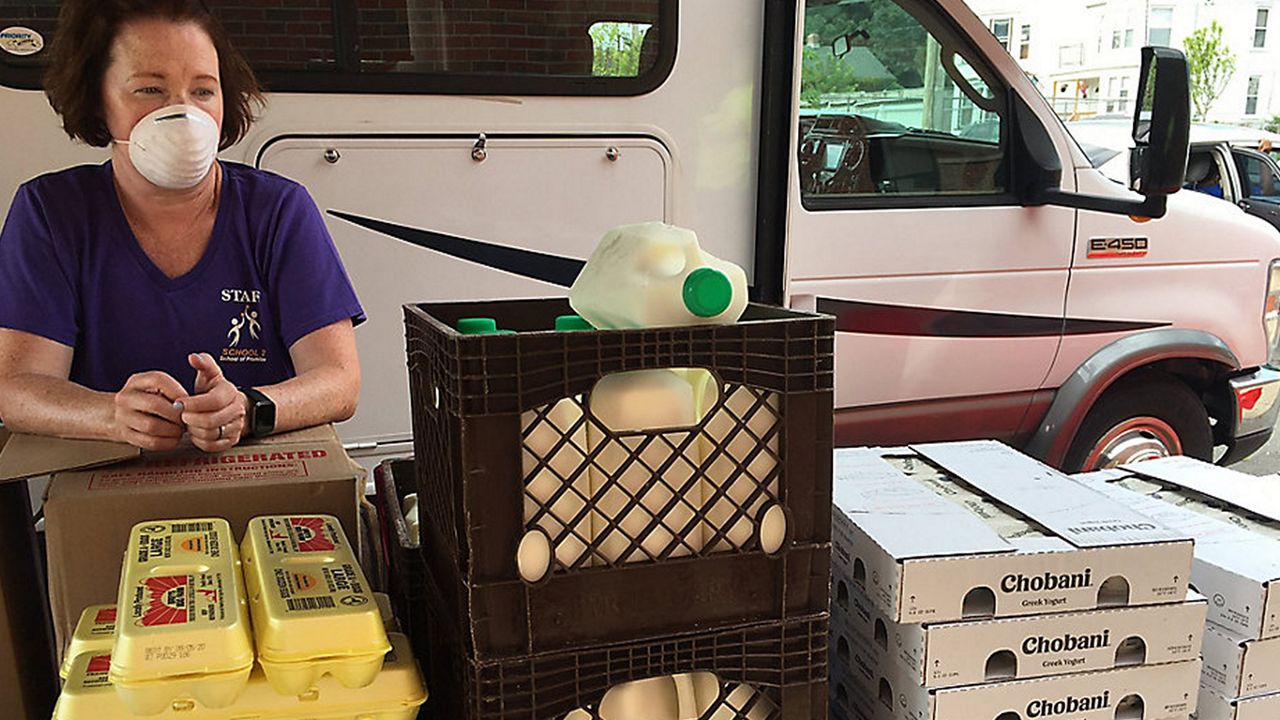The people lined up in ones and twos and threes, some carrying reusable shopping bags that brought from home.
It was already hot July morning before 10 a.m. in Lansingburgh, as they waited for the food drive to begin. Down the block, cars were queued up behind a sawhorse set up by police officers. Those drivers were also waiting to pick up groceries. Windows rolled down, masks on to pick up pantry staples.
The bread lines of the 21st century are still in full force five months into the COVID-19 pandemic – a crisis that has created double-digit unemployment in New York and around the country.
And there's a fear that they won't only continue, but those lines at future food drives will only get longer.
"People are on the edge, I think," said Sister Betsy Van Deusen of Catholic Charities, which was running the food drive with the Regional Food Bank of Northeastern New York. "People have been encouraged because they've had extra food stamps and some other things. But we're coming out of the end of July and I think it's going to be more of a crisis, and people are going to be more anxious. So when people can get food, they're going to take advantage of getting food."
Typically, events like this Catholic Charities food drive provide groceries like bread, milk, and eggs to 500 people. Already this year, millions of pounds more of groceries have been handed out to needy families.
"We're seeing an increase across the board in the 23 counties we serve, about 60 to 70 percent," said Susan Lintner, the community development director of the Regional Food Bank. "It's variable, but what we're hearing is the charitable food assistance network does need some help."
The pandemic has frozen the economy, leading to level of joblessness that hasn't been seen since the Great Depression. Fiscal Policy Institute Chief Economist Jonas Shaende says government intervention has helped, but that could soon vanish.
"Many people were kept afloat," he said. "However, the situation is going to worsen or we can expect it to worsen when things are going to run out."
That includes $600 in weekly aid for those who have lost their job as a result of the pandemic set to expire at the end of this month. Other safeguards, a moratorium on mortgage defaults, and tenant evictions by the state, are set to expire in August.
A new coronavirus stimulus package is under debate by lawmakers in Washington. Lawmakers in Albany, just a 20-minute drive from where the food drive was taking place, want to codify the ban on evictions put in place by the governor.
Sister Betsy says she, too, expects the need for the basic staples of a family – food in pantries and refrigerators – to only grow.
"It sort of has been this trickle-down of so many things," she said. "People who do transportation, people who work at the airport. This domino effect has really affected so many people."


